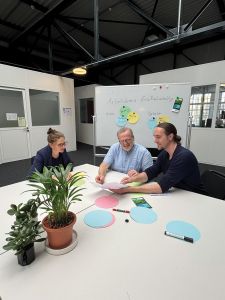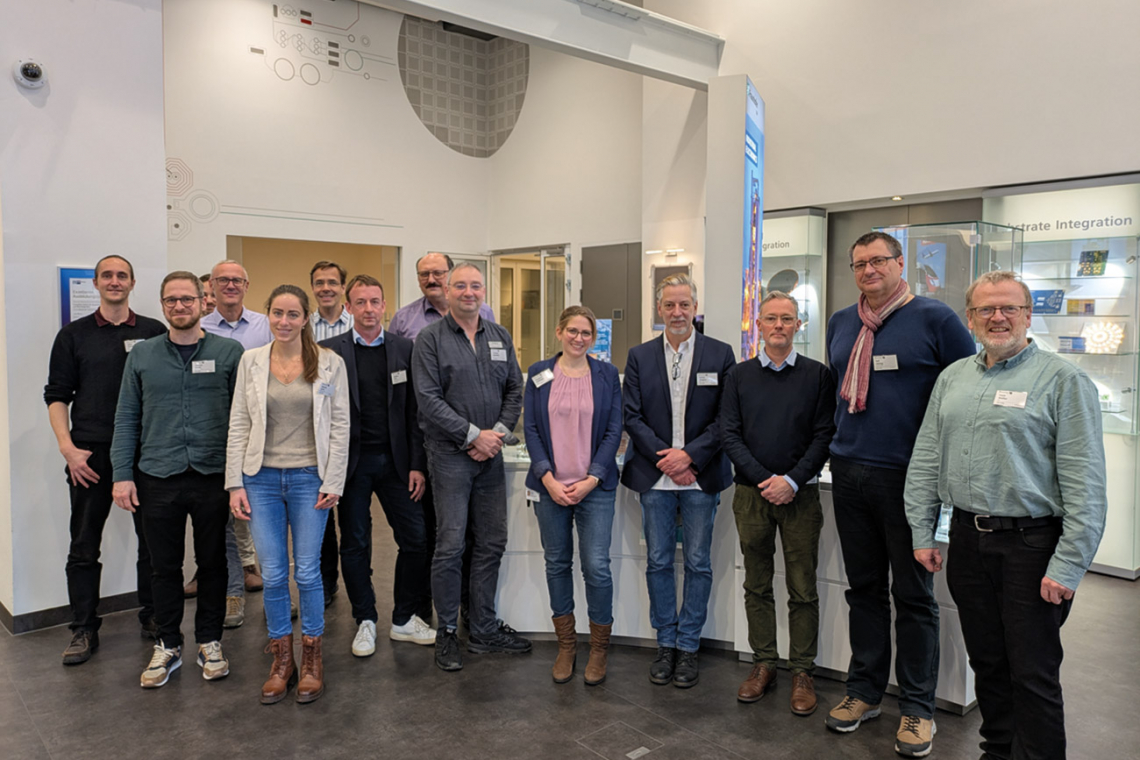Driven by the digital and ecological transformation, the term 'EcoReliability' has gained popularity. While the term has already found its way into science, the reliability of products is more important for industry.
In order to protect our planet, it is no longer enough to focus solely on product reliability. Concrete solutions must continue to focus on ecological sustainability. This is precisely what led to the establishment of the 'EcoReliability' working group. The participants are working on innovative research and development solutions for the production and use of ecologically sustainable electronic products. After all, sustainability doesn't just have to be expensive - it can also turn out to be a competitive advantage.
The term 'EcoReliability' refers to the interplay between reliability and environmental aspects (ecological) in both product development and product use. This includes minimizing environmental influences during the production and use phase of products on the one hand and maximizing product life on the other. In future, products should be designed in such a way that they last longer and need to be replaced less frequently. This helps to save costs. At the same time, sustainable materials, energy-efficient production processes and environmentally friendly disposal methods should be used to significantly reduce the negative impact on the environment and therefore the consumption of resources and the amount of waste.
The EcoReliability approach combines ecological and reliability-related assessments in a single strategy based on three objectives:
- Minimize the impact on nature. This includes maximizing the reduction of air and water pollution, waste and toxins. Life cycle assessments can help identify environmental hotspots over the life of a product and prevent unexpected events in this context.
- Maximize product durability - and thus the time of functionality of a product under defined conditions of use, maintenance and repair. Improved product reliability and design for repair and recycling are useful strategies for maintaining lifecycle value.
- Increase the overall value of products or services and thus the benefit for consumers in terms of product functionality, flexibility and modularity while maintaining reasonable costs.
 In the working group, challenges and solutions from industry-related application and research are discussed and scientifically scrutinized together with partners from industry, andFraunhofer IZM benefits from over 30 years of experience in environmental assessment and ecological design as well as from its expertise in reliability testing and service life optimization. Researchers have learned that good product and system design must take these aspects into account as early as possible in the design process in order to become a potentially decisive factor in the product concept and marketing strategy.
In the working group, challenges and solutions from industry-related application and research are discussed and scientifically scrutinized together with partners from industry, andFraunhofer IZM benefits from over 30 years of experience in environmental assessment and ecological design as well as from its expertise in reliability testing and service life optimization. Researchers have learned that good product and system design must take these aspects into account as early as possible in the design process in order to become a potentially decisive factor in the product concept and marketing strategy.
For this reason, responsible employees from the Institute's reliability and sustainability department have joined forces and founded the EcoReliability - Reliable and Sustainable Electronics working group. In this group, they want to come together with representatives from the electronics industry, from research institutions in the fields of materials and the environment and from industry and associations.
Past meetings have shown the influence of life cycle assessments (LCA) on the environmental impact of printed circuit boards and semiconductors during product development and how targeted improvements can be identified. In addition, the EU 'Right to Repair' initiative and which analysis methods are suitable for assessing reliability were discussed. The working group will pass on these valuable findings to support companies in making their production processes more sustainable and improving their environmental footprint.
Participation in the working group
The working group meets three times a year. Two meetings are hybrid and one is held in person. At the lectures, experts from various fields present their studies and solutions that pave the way for sustainable and reliable electronics. On 9 July, for example, there will be presentations on the open cloud based on OCP and refurbished hardware (Scaleup Technologies Berlin), the thermomechanical reliability of aluminium bonding wires in power electronic components (Robert Bosch) and digitalization in the manufacturing environment (Siemens).
The meetings offer participants the opportunity to visit Fraunhofer IZM's reliability laboratories or production lines and the clean room. Interested parties can join the working group and contribute to the development of sustainable products. There will be ample opportunity to exchange knowledge and collaborate with experts. In addition, cross-application and cross-technology contacts can be made to support the development of new ideas.





